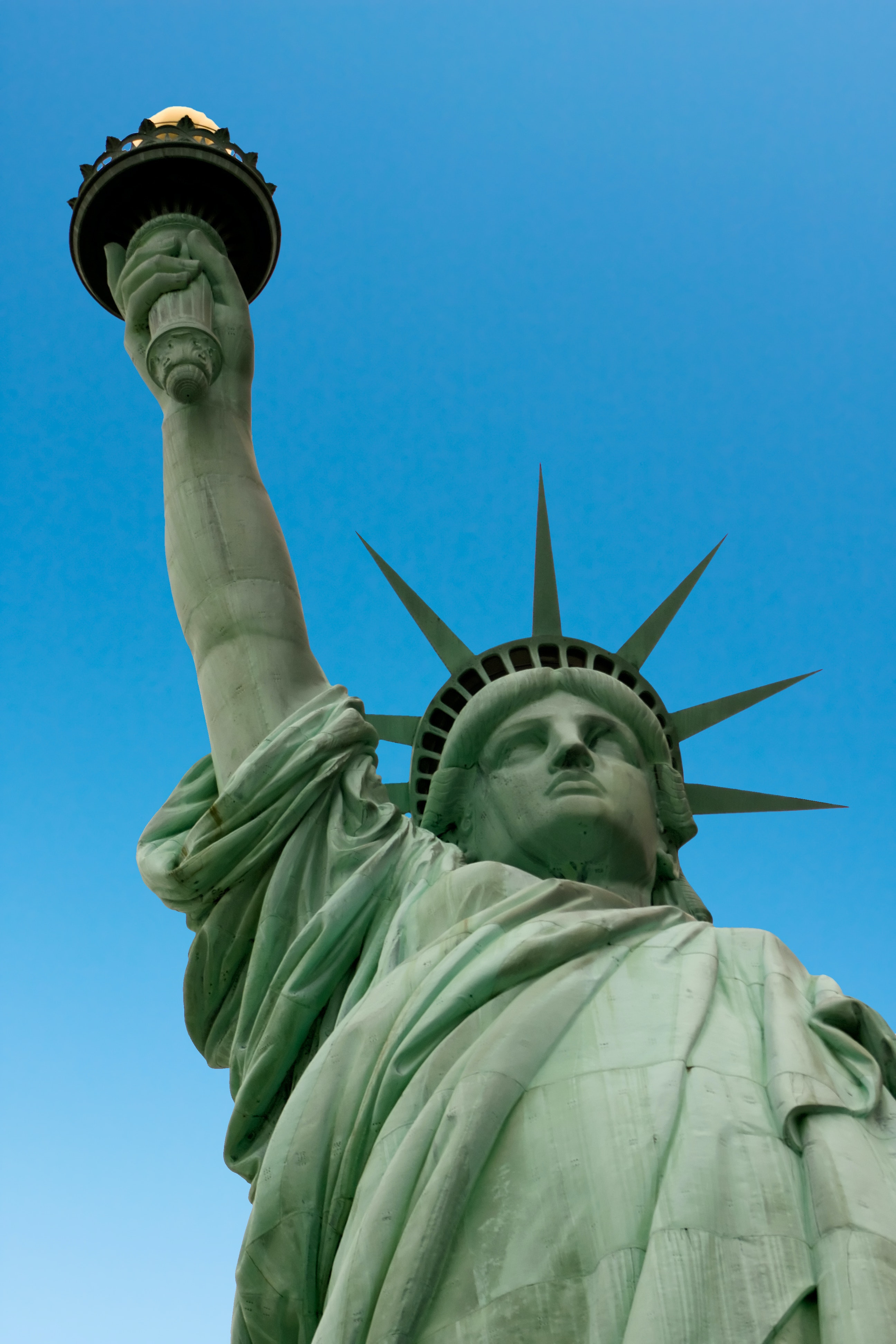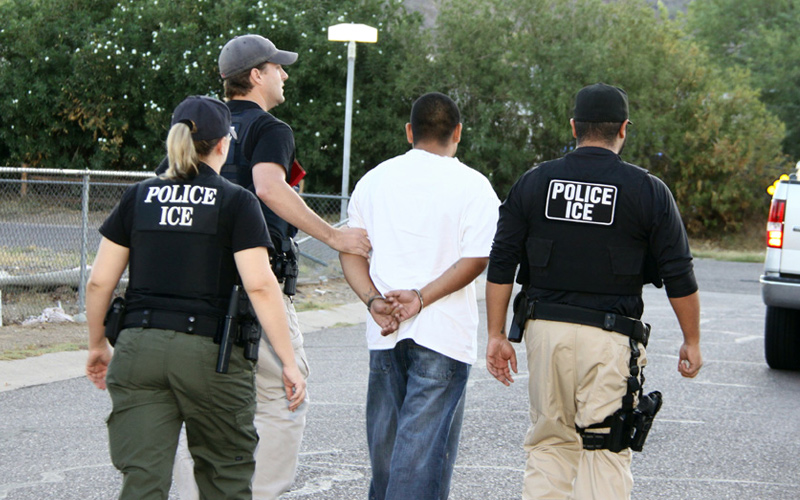WASHINGTON, March 4 (UPI) -- As the nation hurtles toward what promises to be a hotly contested presidential election this fall, the U.S. Supreme Court is set to hear a case this spring and render a decision by late June that would thrust illegal immigration back into the headlines, and possibly into the campaigns.
The justices are scheduled to hear the Arizona immigration law case and should hand down a ruling before recessing for the summer. Those following the case know the lower courts have said the stringent state law is pre-empted by the less stringent federal law.
At the heart of the dispute: If the federal government and federal law fails to control illegal immigration and its effects, do individual states have the right to enact their own tougher laws?
The New York Times reported last week, before the state's Republican primary, "there has been a notable decline [in Arizona] in police activity aimed at illegal immigrants, easing a long period of anxiety among Mexican communities. ... [and] concern about illegal immigration is no longer the all-consuming issue it had been for so long."
The Los Angeles Times reported disappointed activists "were hoping to use fierce rhetoric from the [Republican] candidates -- along with recent anti-illegal immigration steps they view as extreme -- to help boost Latino voter registration and even turn Arizona into a battleground state." That would require a large turnout of moderate voters.
"But the very idea that Arizona could be up for grabs this year underscores the way illegal immigration continues to shade the state's political landscape," the newspaper said.
At times the dispute between the federal government and the state government has seemed personal. Arizona Gov. Jan Brewer apparently lectured President Barack Obama on an airport tarmac earlier this year. Last month, during a meeting of the National Governors Association in Washington, Brewer skipped a dinner at the White House, and didn't speak to the president the next day.
Administration critics would say the hard feelings are understandable. Even the lower courts agree that Arizona has suffered -- with a capital S.
U.S. District Judge Susan Bolton, while issuing an injunction against the state law in the administration's challenge, acknowledged the law was enacted against "a backdrop of rampant illegal immigration, escalating drug and human trafficking crimes and serious public safety concerns."
Bolton, by the way, received hundreds of death threats after ruling against the state, U.S. marshals said.
Last week, in a suit filed by the Mexican American Legal Defense and Educational Fund, Bolton also ruled the state cannot make it illegal for someone to enter a car stopped in traffic to go to work in another location. Bolton also struck down a provision in Arizona's immigration law that made it illegal for drivers who stop to pick up laborers. Bolton said being a day laborer is not a crime.)
In the larger challenge to the immigration law, a federal appeals court panel, which ruled 2-1 against the state, conceced Arizona enacted its own law enforcement policy in April 2010 "in response to a serious problem of unauthorized immigration along the Arizona-Mexico border."
"Arizona bears the brunt of the problems caused by illegal immigration," the state said in its petition to the U.S. Supreme Court. "It is the gateway for nearly half of the nation's illegal border crossings. ... Unlawful entrants include criminals evading prosecution in their home countries and members of Mexican drug cartels."
But beyond "the obvious safety issues, the fiscal burdens imposed by the disproportionate impact of illegal immigration on Arizona are daunting," the petition said. "Arizona spends several hundred million dollars each year incarcerating criminal aliens and providing education and healthcare to aliens who entered and reside in the country in violation of federal law."
The illegal immigration problem was so severe that then-Gov. Janet Napolitano -- now the Obama administration's secretary of homeland security -- declared a state of emergency.
Moreover, "Arizona has repeatedly asked the federal government for more vigorous enforcement of the federal immigration laws, but to no avail," the petition said.
The petition said Arizona enacted its law in response to federal inaction and the growing threat.
When they hear argument April 25, the state said, the justices should look at the Support Our Law Enforcement and Safe Neighborhoods Act, which aims "to ensure more effective enforcement of the federal immigration laws in Arizona, consistent with the requirements of federal law and the U.S. Constitution," and consider whether "the federal immigration laws preclude Arizona's efforts at cooperative law enforcement and impliedly pre-empt" the provisions of the law.
In one of its own briefs, the Obama administration sees the questions somewhat differently. The administration, of course, wants the justices to answer "No" to each of the questions.
The brief asks the court to consider:
-- "Whether the district court [Judge Bolton] abused its discretion by preliminarily enjoining Section 3, which creates a state-law crime of being unlawfully present in the United States and failing to register with the federal government, as likely pre-empted by federal law, which comprehensively regulates alien registration.
-- "Whether the district court abused its discretion by preliminarily enjoining Section 5, which creates a state-law crime of seeking work or working while not authorized to do so, as likely pre-empted by federal law, which imposes civil and criminal penalties on employers who knowingly employ unauthorized aliens but only civil sanctions on aliens who work without authorization.
-- "Whether the district court abused its direction by preliminarily enjoining a portion of Section 2 that requires state and local officers to verify the citizenship or alien status of people arrested, stopped or detained without regard to federal enforcement priorities, as likely pre-empted by federal law, which requires systematic state enforcement efforts to be cooperative with federal officials and consistent with federal priorities.
-- And finally, "Whether the district court abused its discretion by preliminarily enjoining Section 6, which authorizes warrantless arrests of aliens believed to be removable, as likely pre-empted by federal law, which requires systematic state enforcement efforts to be cooperative with federal officials and consistent with federal priorities."
Critics of the Arizona immigration law include civil libertarians and immigration rights advocates, and Mexican officials and U.N. diplomats.
In its merit brief to the U.S. Supreme Court, Arizona scoffs at foreign criticism by citing U.S. Circuit Judge Carlos Bea, the dissenter on the three-judge appellate panel, who used words that may yet translate into political red meat for immigration hard-liners.
"The panel majority pointed to foreign criticism of [the state law] as support for its pre-emption finding," the brief said. "That reliance on foreign criticism was just one more way in which the [appellate court] strayed from this [U.S. Supreme] Court's precedents. As Bea succinctly put it: 'We do not grant other nations' foreign ministries a heckler's veto.'"
Read more: Under the U.S. Supreme Court: States, courts and the illegal alien disaster - UPI.com
Source: www.upi.com
`









